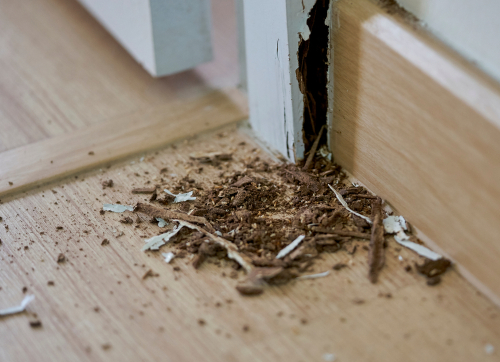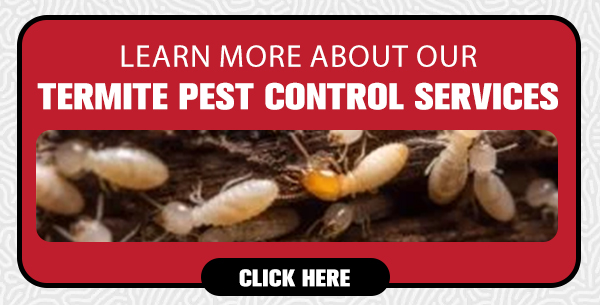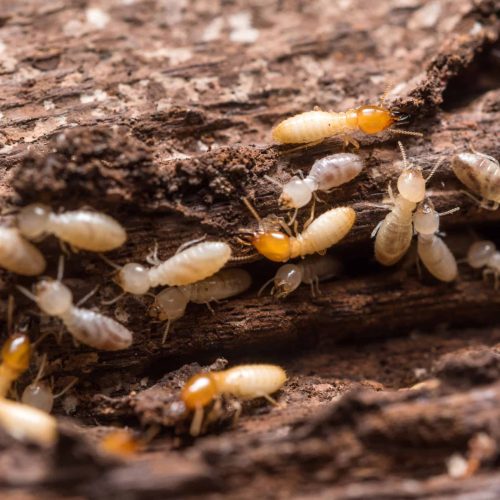Protect Your Missouri Home from the Silent Destroyers
Spring is all about renewal—budding trees, warmer weather, and fresh beginnings. However, for Missouri homeowners, there’s another emerging “seasonal” element that requires attention—termites. These silent destroyers thrive in Missouri’s climate, and as spring rolls in, they become particularly active.
Termites can cause extensive damage to your home if not detected or prevented in time. But don’t worry—this guide will help you understand termites, recognize the signs of activity, and take preventive steps to protect your home this spring.
Understanding Missouri’s Termite Threat
Missouri’s humid climate creates the perfect environment for termites, especially subterranean termites. These pests feed on wood and can cause structural damage worth thousands of dollars before being noticed. Alarming, right? A single colony can devour about 5-15 feet of a 2×4 beam in just one year, potentially jeopardizing your home’s integrity.
Spring marks the beginning of the swarming season when termites search for new areas to establish colonies. Watching out for their activity during this period is critical.
Signs of Termite Activity to Watch For
Spotting termite activity early can save you significant stress and money. Here are signs you should keep an eye on this spring:
Mud Tubes
Located along foundation walls or crawl spaces, these pencil-thin tubes are used by termites as protected travel paths between their colonies and food sources.
Termite Swarmers
Winged termites, or swarmers, are most active during spring. You might notice them around doors, windows, and light sources, especially after rain.
Hollow-sounding Wood
If tapping on wooden structures like baseboards or window frames produces a hollow sound, there’s a chance termites have already made it to their next meal.
If you notice any of these signs, it’s time to act fast.
Spring Prevention Strategies
Now that you know the risks, here’s how to keep termites away:
Moisture Management
Termites are drawn to moisture. To make your home less appealing:
- Ensure gutters and downspouts direct water away from your foundation.
- Fix leaky pipes, faucets, and air conditioning units promptly.
- Ventilate crawl spaces to reduce indoor humidity.
Keeping your property dry makes it a lot less inviting for termites.
Landscaping Considerations
Your spring landscaping efforts can also play a role in preventing termites.
- Keep a gap of at least 18 inches between mulch or soil and your home’s foundation.
- Replace wood mulch with termite-resistant options like rubber mulch, gravel, or cedar chips.
- Avoid piling mulch too thickly or against your foundation.
These small adjustments can act as a protective barrier for your home.
Prevent Wood-to-Soil Contact
Wood-to-soil contact creates a direct pathway for termites. Avoid it by:
- Concrete bases or metal brackets should be installed where wooden structures like deck posts and stairs meet the soil.
- Removing tree stumps, dead roots, or any wood debris near your home.
- Storing firewood at least 20 feet away from your house and raised off the ground.
By blocking this easy access, you significantly lower your risk of infestation.
Structural Maintenance
A solid structure is another key line of defense. Termites can squeeze through gaps as small as 1/32 of an inch!
- Inspect your foundation and seal cracks or openings, especially around utility entry points.
- Use appropriate sealants for durable protection.
Proactive maintenance can eliminate key entry points before termites find them.
Regular Inspections
Scheduling professional inspections annually is one of the best ways to prevent infestations. Pest control experts can identify early warning signs and address risks you might miss. Early spring is the ideal time to book your inspection before termite activity peaks.
Treatment Options for Additional Protection
If prevention isn’t enough, consider these treatment options to keep termites at bay:
Bait Systems
Bait stations like the Sentricon Always Active system intercept termites before they reach your home. These eco-friendly systems offer long-term protection by targeting their colonies directly.
Treated Wood
For home improvements or repairs, opt for pressure-treated wood. Though it’s not completely termite-proof, it can make your structures far less appetizing to termites.
Chemical Barriers
Professional-grade chemical treatments provide a protective barrier around your home’s foundation. Many last for years and are applied by pest control experts.
Discuss these options with your exterminator for tailored protection.
Long-term Strategies to Protect Your Home
Don’t stop after spring—here’s how to maintain termite control year-round:
Keep Detailed Documentation
Track inspections, treatments, and any termite activity. Keeping thorough records helps you monitor trends and ensure consistent prevention.
Stay Educated
Keep up to date on termite behaviors and prevention techniques. Being informed ensures you’re always one step ahead of the pests.
Regular Maintenance
Schedule recurring home checks for moisture issues, wood vulnerability, and adequate drainage. Preventive maintenance makes a big difference over time.
Your Spring Termite Prevention Checklist
Here’s a quick-action checklist to get started now:
- Schedule a professional termite inspection.
- Seal cracks in your foundation or entry points.
- Fix leaks and manage moisture.
- Inspect and adjust your landscaping.
- Install bait systems or chemical barriers as needed.
Acting now will save you from hazardous—and costly—infestations later.

Safeguard Your Home This Spring
Worried about termites as the weather warms up? Check out our Springtime Termite Control Guide to learn how to spot the signs early and protect your home before infestations spread.
Termites are destructive, but with preparation and knowledge, you can safeguard your home from these silent destroyers. The investment in prevention is minimal compared to the repair costs of an infestation. Don’t leave your home’s protection to chance. Schedule your termite inspection today and gain peace of mind knowing your home is secure. Contact Steve Pest Control to find out how you can use the only method of prevention so you never have to worry about termites.
Proven Termite Treatment & Prevention in Missouri
Traditional liquid treatments can create a barrier, but our Sentricon® Colony Elimination System goes further. It eliminates the termite queen and the entire colony and offers lifetime protection with a substantial damage warranty. In Missouri, termite damage costs homeowners between $3,000 and $11,000 per incidents. Don’t rely on do‑it‑yourself methods Termite Pest Control; our certified specialists provide professional treatment and ongoing monitoring to ensure termites don’t return.



